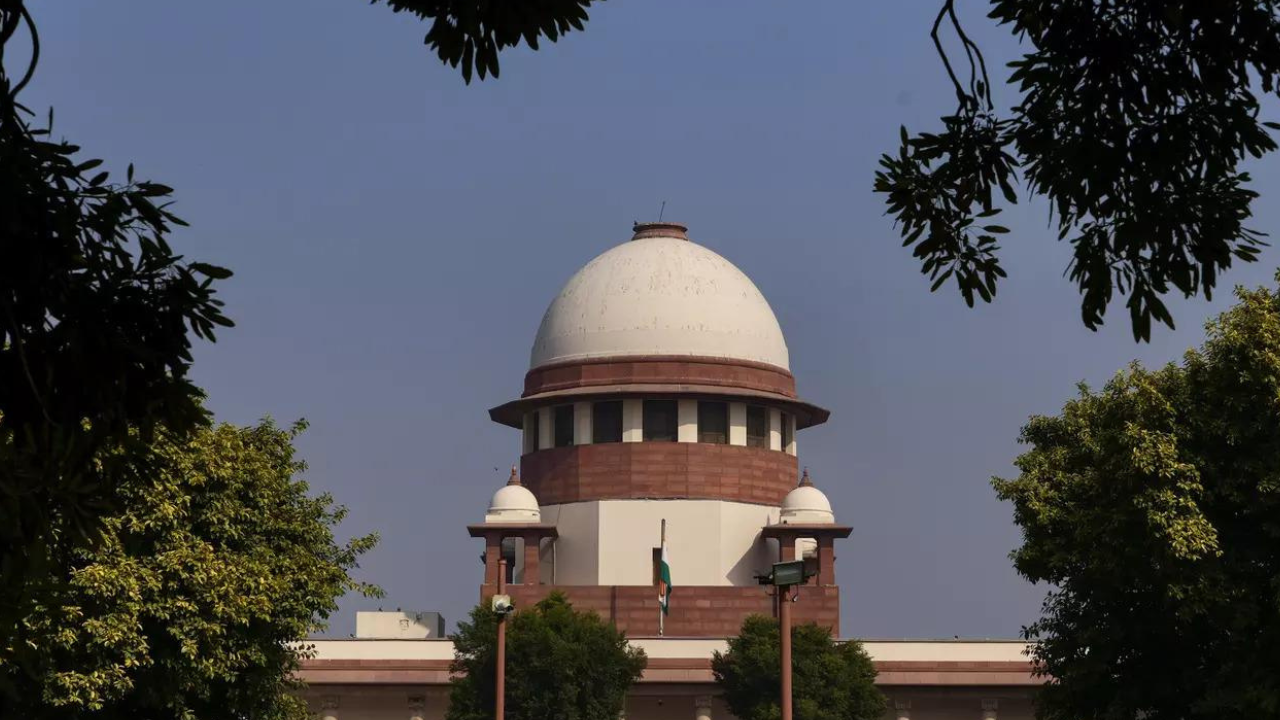NEW DELHI: Though it refrained from adjudicating whether reorganisation of Jammu and Kashmir into two Union Territories of J&K and Ladakh was valid in view of the Centre’s assurance to restore statehoodthe Supreme Court on Monday upheld creation of Ladakh as a UT and ordered restoration of J&K’s statehood “at the earliest and as soon as possible” while directing the Election Commission to hold assembly elections by the end of September.
Solicitor general Tushar Mehta told the court that J&K’s statehood would be restored and that its status as a UT was temporary. The SG submitted that the status of the UT of Ladakh would not be affected by restoration of statehood to J&K.
“In view of the submission made by the SG that statehood will be restored to J&K, we do not find it necessary to determine whether the reorganisation of the state of Jammu and Kashmir into two UTs of Ladakh and J&K is permissible under Article 3,” the CJI said in his judgment and the same view was expressed by Justice Sanjay Kishan Kaul.
“The status of Ladakh as a UT is upheld because Article 3(a), read with Explanation I, permits forming a UT by separation of a territory from any state. This court is alive to the security concerns in the territory. Direct elections to legislative assemblies, which is one of the paramount features of representative democracy in India, cannot be put on hold until statehood is restored. We direct that steps shall be taken by the Election Commission to conduct elections to the legislative assembly of J&K constituted under Section 14 of the Reorganisation Act by September 30, 2024. Restoration of statehood shall take place at the earliest and as soon as possible,” the CJI said.
Justice Kaul said it would be incorrect to presume that absolute sovereignty remained vested in states and Article 3 gave Parliament wide powers to alter the boundaries of states.
Justice Sanjiv Khanna said there must be a very strong and cogent reason to carve out a UT from a state. “Union Territories are normally geographically small territories, or may be created for aberrant reasons or causes. Conversion of a state into a UT has grave consequences, among others, it denies the citizens of the state an elected state government and impinges on federalism. Conversion/creation of a UT from a state has to be justified by giving very strong and cogent grounds. It must be in strict compliance with Article 3 ,” he said.
Solicitor general Tushar Mehta told the court that J&K’s statehood would be restored and that its status as a UT was temporary. The SG submitted that the status of the UT of Ladakh would not be affected by restoration of statehood to J&K.
“In view of the submission made by the SG that statehood will be restored to J&K, we do not find it necessary to determine whether the reorganisation of the state of Jammu and Kashmir into two UTs of Ladakh and J&K is permissible under Article 3,” the CJI said in his judgment and the same view was expressed by Justice Sanjay Kishan Kaul.
“The status of Ladakh as a UT is upheld because Article 3(a), read with Explanation I, permits forming a UT by separation of a territory from any state. This court is alive to the security concerns in the territory. Direct elections to legislative assemblies, which is one of the paramount features of representative democracy in India, cannot be put on hold until statehood is restored. We direct that steps shall be taken by the Election Commission to conduct elections to the legislative assembly of J&K constituted under Section 14 of the Reorganisation Act by September 30, 2024. Restoration of statehood shall take place at the earliest and as soon as possible,” the CJI said.
Justice Kaul said it would be incorrect to presume that absolute sovereignty remained vested in states and Article 3 gave Parliament wide powers to alter the boundaries of states.
Justice Sanjiv Khanna said there must be a very strong and cogent reason to carve out a UT from a state. “Union Territories are normally geographically small territories, or may be created for aberrant reasons or causes. Conversion of a state into a UT has grave consequences, among others, it denies the citizens of the state an elected state government and impinges on federalism. Conversion/creation of a UT from a state has to be justified by giving very strong and cogent grounds. It must be in strict compliance with Article 3 ,” he said.







